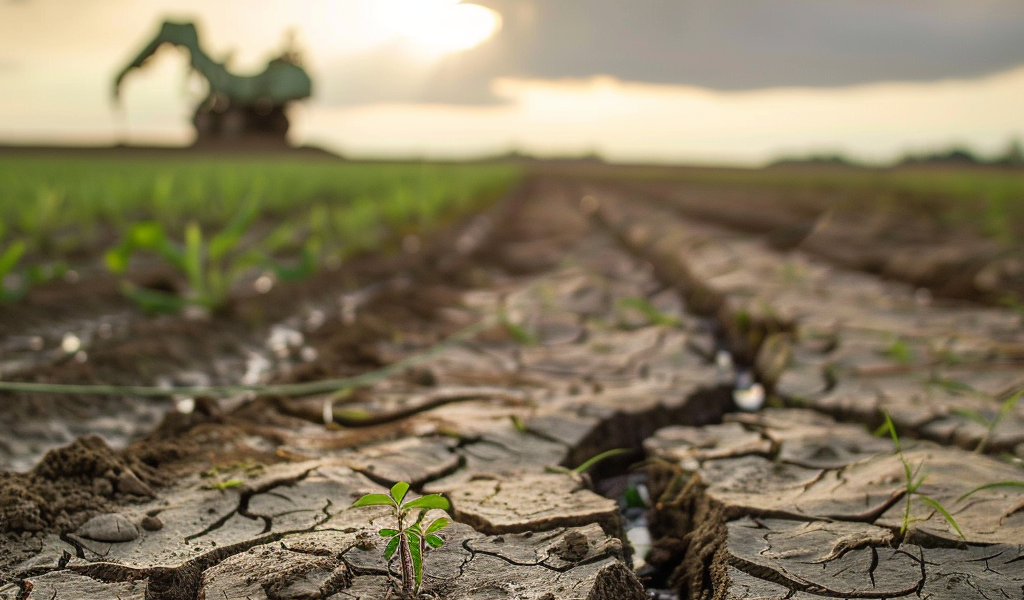In a groundbreaking study published in the journal Geophysical Research Letters, researchers have uncovered a startling phenomenon: the Earth’s tilt has shifted by an astonishing 31.5 inches due to the extensive pumping of groundwater. This revelation sheds light on the profound impact that human activities have on our planet’s rotational dynamics and highlights the urgent need for a reevaluation of water management practices in the face of climate change.
The study, led by Ki-Weon Seo, a geophysicist at Seoul National University, emphasizes the significant role that groundwater extraction plays in altering the Earth’s rotation. This shift is not merely a scientific curiosity; it has tangible consequences, including a corresponding rise in sea levels. According to the findings, the tilt caused by groundwater pumping translates to approximately 0.24 inches of sea-level rise.
Seo remarked, “Our study shows that among climate-related causes, the redistribution of groundwater has the largest impact on the drift of the rotational pole.” This insight underscores the intricate relationship between water distribution and the Earth’s physical characteristics. The research indicates that as water is extracted from various sources for irrigation and human consumption, it ultimately finds its way into the oceans, contributing to rising sea levels.
The implications of this research are profound, particularly in the context of climate change. The study analyzed data spanning from 1993 to 2010, revealing that a staggering 2,150 gigatons of groundwater have been pumped from the Earth. This extensive extraction has led to measurable changes in the Earth’s rotational axis, a phenomenon that has garnered little attention until now.
The study’s findings build upon earlier research conducted by NASA in 2016, which first hinted at the connection between water distribution and the Earth’s rotation. However, the recent study provides a more detailed analysis, offering concrete figures that illustrate the extent of the impact. Seo expressed both relief and concern regarding these findings, stating, “I’m very glad to find the unexplained cause of the rotation pole drift. On the other hand, as a resident of Earth and a father, I’m concerned and surprised to see that pumping groundwater is another source of sea-level rise.”
Understanding the mechanics behind the Earth’s tilt is crucial for predicting future climate scenarios. As water is redistributed across the planet, the mass changes can affect the rotational dynamics, much like how adding weight to a spinning top alters its spin. The research team employed sophisticated models to simulate the observed changes in the drift of the rotational pole, ultimately concluding that the only scenario that accurately matched the drift involved the redistribution of the aforementioned 2,150 gigatons of groundwater.
This study serves as a stark reminder of the interconnectedness of human actions and environmental consequences. As global populations continue to grow and water demand increases, the pressure on groundwater resources intensifies. The findings highlight the need for sustainable water management practices that consider the long-term effects on both local ecosystems and the planet’s rotational stability.
As the world grapples with the challenges posed by climate change, understanding the factors contributing to sea-level rise becomes increasingly critical. This research not only sheds light on the role of groundwater extraction but also opens the door for further investigations into other human activities that may influence the Earth’s geophysical properties.
The urgency of addressing these issues cannot be overstated. Policymakers, scientists, and communities must come together to develop strategies that mitigate the impact of groundwater pumping on the environment. As the data continues to evolve, it is essential to prioritize sustainable practices that protect our planet for future generations.
In conclusion, the research conducted by Seo and his team represents a significant advancement in our understanding of the Earth’s dynamics. With the tilt of our planet being influenced by human actions, it is imperative that we take a proactive approach to water management and climate change mitigation. The findings serve as a call to action for all stakeholders to engage in meaningful discussions and implement effective solutions to safeguard the future of our planet.





